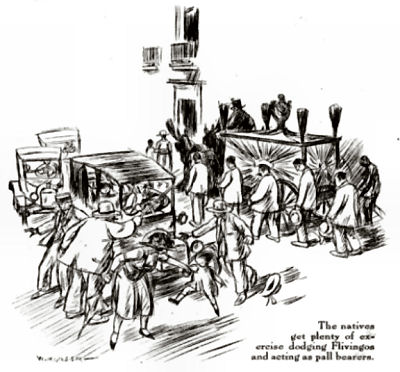Samuel Goldwyn? Michael Curtiz? Sheilah Graham? Jones? Scones? Louis Cukela? Fictional?
Question for Quote Investigator: There is an unintentionally hilarious remark credited to the movie mogul Samuel Goldwyn. He sent an assistant on an important errand and was angry when the task was badly botched. In exasperation Goldwyn created this classic rebuke:
The next time I send a damn fool for something, I go myself.
However, I am now told that Michael Curtiz, a Hungarian-American film director, actually spoke this line to a prop man who retrieved the wrong prop three times in a row. Can you resolve this uncertainty?
Reply from Quote Investigator: The earliest example of this basic story located by QI does not involve Samuel Goldwyn or Michael Curtiz. In November 1889 the influential humor magazine “Judge” of New York printed the following funny tale about a person named “Jones”, but this incident was not portrayed as an actual event. Instead, “Jones” was used as a generic name in a fictional gag:1
Jones, having sent a stupid servant to do an errand, was greatly annoyed on finding that he had done exactly the opposite of what he had been ordered.
“Why, you haven’t common-sense,” he remonstrated.
“But, sir”—
“Shut up! I should have remembered that you were an idiot. When I’m tempted to send a fool on an errand again I’ll not ask you—I’ll go myself.”
The passage above was reprinted in the Boston Herald newspaper of Massachusetts with an acknowledgement pointing to “Judge” magazine.2 The joke was published a couple years later in 1891 in the companion magazine “Judge’s Library: A Monthly Magazine of Fun”.3 Versions of the tale were also featured in several other newspapers and magazines in succeeding years.
Sometimes a pre-existing comical anecdote is spuriously assigned to a series of famous personalities over a period of decades. When this occurs the attributions are inaccurate and the events are fictitious. These entertaining apocryphal tales can be used to fill column inches in newspapers and pages in books. Yet, in this case, intriguingly, there is eyewitness evidence that a variant of the gag was embodied in an actual occurrence on a film set.
The first connection found by QI between Michael Curtiz and the saying was dated 1936. The syndicated Hollywood gossip columnist Sheilah Graham visited the movie location for “The Charge of the Light Brigade” and observed the behavior of the director Curtiz.
During the filming of one scene an actor playing an English cavalryman shouted “Yippee”, and the incongruous scene required a reshoot. During the second take a horse became recalcitrant and spoiled the action:4
It is now 10 minutes to six, and the light is going fast. The third “take” is ruined by a too-eager extra who charges ahead of the order. “Next time I send a fool into the charge, I’ll go myself,” wails the foreign Mr. Curtiz, whose American becomes confused in moments of stress.
Here are additional selected citations in chronological order.
Continue reading “Quote Origin: The Next Time I Send a Damn Fool for Something, I Go Myself”